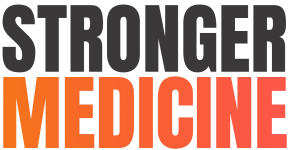I just finished Atul Gawande’s ‘Better’, and some words from the final few pages prompted me to open the laptop:
Write something. I do not mean this to be an intimidating suggestion. It makes no difference whether you write five paragraphs for a blog, a paper for a professional journal, or a poem for a reading group. Just write...Most of all, by offering your reflections to an audience, even a small one, you make yourself part of a larger world. Put a few thoughts on a topic in just a newsletter, and you find yourself wondering nervously: Will people notice it? What will they think? Did I say something dumb? An audience is a community.
So choose your audience. Write something.
Anyway, I’m currently rotating through a highly enjoyable, albeit busy, emergency medicine placement. A&E retains the same generalist appeal that my previous general practice block provided, but I now realise just how much more I prefer to be on my feet rather than in front of a computer screen for most of my shift. Although I’ll never use time as an excuse, the podcasting has slowed down whilst spending more time with family and maintaining body and soul. Things will pick up soon.
Each year my wife and I do a brief annual review of how things have been and where things are going. That time seems to speed up as we age is a cliche for a reason, and regret avoidance has always been something that I’ve tried to use to guide how I live. This year I tried to give a little more thought to some important ideas that could guide what I’m doing with my time and energy.
Below is less a set of specific goals, and more just some prompting themes that have emerged for me, personally (not to be interpreted as intended guidance for anyone else).
- Steward my time well
My cohort and I very recently lost a dear colleague and friend, Dr Will Reid. What happened is still surreal and awful, and has made me think a lot. I spent 8 months working with Will, and by my own reckoning, he was squeezing the juice out of life, with direction and a vision for his and his girlfriend’s future. To the degree that I was lucky enough to know him, Will was an excellent colleague, man and doctor.
Both his own example and the shocking reminder of how nothing is guaranteed in this life have both shaken me to really grasp the finitude of time, opportunity and life. I find myself questioning “are you doing what you should be doing?”, “are you wasting your time/resources?”, “are you doing this because you think it will impress people?”, and so on.
To do the things I should be doing, for the right reasons, are what I am striving for. - Low level stimulation sabotages real progress
I have too often placated any niggling sense of boredom with a knee-jerk reaching for my phone and browsing facebook, instagram, news…any number of consumable sources. This is especially pertinent when my cognitive reserves and physical energy have been drained by a busy 12 hour A&E night shift, for example. But caving in just ingrains the neural networks and subsequent habits. I rarely hit the threshold for true boredom because of this easily accessible, infinite feed of low level stimulation, which is always just enough to capture my attention and sustain it. Not allowing myself to become bored means I’m rarely forced to think, to grab a book, to write something, to reflect etc.
Bypass low level stimulation and be forced to read/think/write/do/create.
As Cal Newport has written: “I have limited time and attention. I try to devote as much of it as possible to creating valuable things and spending time with my family and close friends. For a new tool to claim some of my time and attention from these activities it has to offer me a lot of value in return. Facebook falls well short of this threshold.” - People care much less than you think
Written perhaps more callously-sounding than intended, but I believe that however much people around us may care, we all have our own day-to-day lives to deal with. We are busy, and life can demand a lot from us. It’s not that no one cares, but that we are all so engaged in our own lives that we should not worry about what others may think of us for trying to do something we may be anxious of. Writing this post, for example, brings some level of ‘what will they think?’, but usually the inner critic shouts a lot louder than anyone else could. - You are responsible for how you spend your time
Heard from an ex-bodybuilder and diabetic, Phil Graham, this almost-too-obvious statement is a sharp reminder for me. When I feel like things are happening to me, and that my life is running on some kind of suboptimal auto-pilot, it is in fact me who decides how I spend my time. I know there are misfortunes and circumstances that happen ‘to’ us, but I sometimes fall into the trap of sensing that I am acting out days that have been planned for me, rather than living with direction and intent. Take ownership of my time, choices, outcomes, across the board. As an A&E consultant wrote elsewhere when advising trainee docs, ‘you chose to become an emergency medicine doctor (or at least I hope you did!)’. - Gratitude
Absolute cheese-fest word of the year. This term usually makes me nauseous, but I was watching a youtube video (during a low-level stimulation binge) of a young entrepreneur’s vlog. Amongst all the 4am alarm clocks, mentor sessions, hustling, vision-setting and so on, there was one part of his video where he spoke about how grateful he was for his university library, and the food and friends he was with. He actually seemed genuinely thankful for it all, and I could see how much joy he got from reflecting on this. Rather than flitting from one thing to ‘what’s next?’, barely focusing on the now, I’ve found that intermittently making sure to actively acknowledge my context and situation in a state of gratitude has been more useful than I would have thought. Through a lot of last year, I’ve really suffered from a feeling of constantly chasing things and dissatisfaction; that state we all know where you’re looking forward and expecting, a state that’s perpetual and you never actually arrive. This has sometimes been a great detriment to my wellbeing. Living with the gnawing urge to leave nothing on the table, ever, can be exhausting and demoralising, and discounts anything now and previous that I should actually appreciate. - Fewer things, but better
Being funnelled down foundation training and into speciality applications has forced me to think what kind of doctor I want to be for the rest of my career. Choose general practice, and you’re likely to have a markedly different life to a life in the emergency department. Younger years can be more speculative, with time spent exploring multiple potential fields or pathways. As I’m progressing through life though, as described above, I’m realising more and more how only a certain number of things truly matter. Its easy for me to get distracted. But I’m making an effort to brutally analyse what I’m doing with my time and energy, and cutting out or at least mindfully rationing those activities that are not aligning with what’s important.
Let’s say:
– You work for a 12 hour shift
– Commute 30 minutes
– Take 1-2 hours either side to get ready/switch off and eat,
– Need to sleep minimum 7 hours (after feeding the unicorns and putting them to bed)
Then what do you intend to do for the remaining 3-4 hours? How about what you do with that 3-4 hour time slot, but multiplied by a career worth of shifts? The currency is the non-renewable resource of time. I hope I can spend it increasingly more wisely.
Links:
- Atul Gawande’s ‘Better’ – such an excellent book
- James Clear’s Annual reviews – interesting to see a successful man’s progression
- Cal Newport’s ‘Digital Minimalism’ – if you are, like me, spending too much time in mindless consumption

